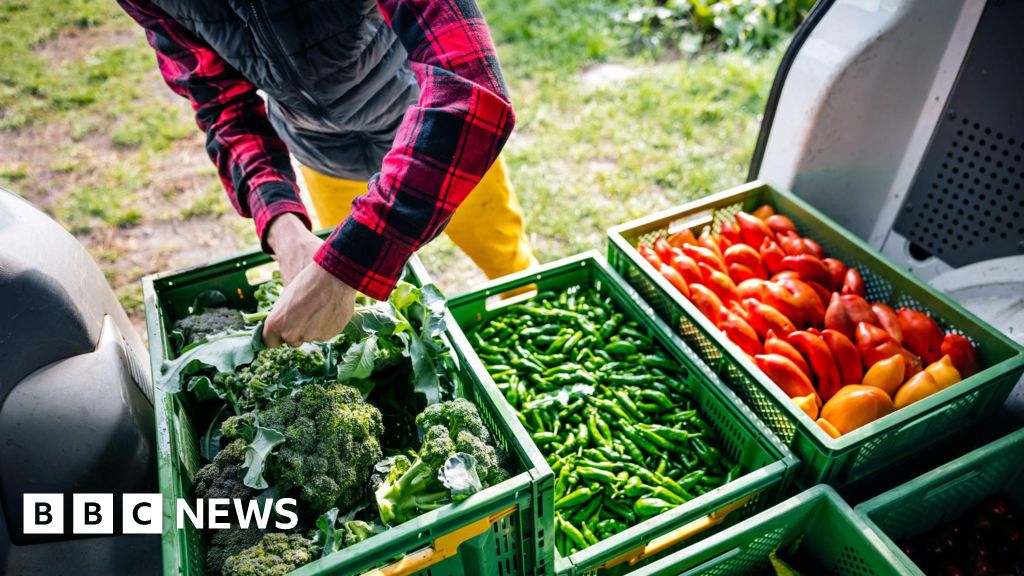
The bureaucracy imposed on British companies because of Brexit has caused a decline in goods trade between the UK and the EU and the problem is getting worse, a study has warned.
Many smaller UK producers have abandoned small-scale exports to the EU after facing more rules and regulations, a report by Aston University Business School has found.
Between 2021 and 2023, the study found that UK goods exports to the EU fell by 27% and imports by 32% compared to what would have been expected without Brexit.
The report does not include the services sector, which has performed better than many experts had expected since Brexit.
The study found that the diversity of commercial export goods has also fallen, with the number of UK product types exported to each EU country falling by 1,645.
The authors say this is because smaller British producers have abandoned small shipments to some EU countries after facing increased bureaucracy.
Mary Quick, from Quick’s Cheese in Devon, told the BBC’s Today programme that she found “dealing with all this regulatory burden very difficult”.
She said she was supplying products to four customers directly in the EU, but “we had to give them to someone else”.
“We don’t have the people to do the paperwork.”
The report said there would be a “notable deterioration in trade between the EU and the UK in 2023”.
The negative effects of [trade agreement] “Trade tensions have intensified over time, with 2023 showing more pronounced trade declines than in previous years,” the report said.
Farmers, clothing manufacturers, and wood and paper manufacturers were among the industries hardest hit, with the value of exports from many EU sub-sectors falling by more than half.
The largest decline in export value was in edible fruits and nuts, which fell by 73.5%.
Trade with smaller, more distant EU countries has been more affected, while trade with larger, closer countries has been less affected.
However, the authors say a small number of sectors have proven resilient, particularly exports to larger EU economies such as Germany and France.
The tobacco, railways and aircraft sectors saw an increase in the diversity of exports to EU countries.
A government spokesman said the government would “work to improve our trade and investment relationship with the EU and remove unnecessary trade barriers, recognising that there will be no return to the single market, customs union or free movement”.
The BBC has learned that in recent meetings with the government, business representatives were invited to contribute early ideas on a “reset” of the trading relationship with the EU, with a focus on “economic security”.
We are unlikely to make any progress until next year, when the new European Commission is in place and the UK has finalised its new industrial and trade strategies.

“Travel specialist. Typical social media scholar. Friend of animals everywhere. Freelance zombie ninja. Twitter buff.”





More Stories
Taiwan is preparing to face strong Typhoon Kung-ri
Israel orders residents of Baalbek, eastern Lebanon, to evacuate
Zelensky: North Korean forces are pushing the war with Russia “beyond the borders”